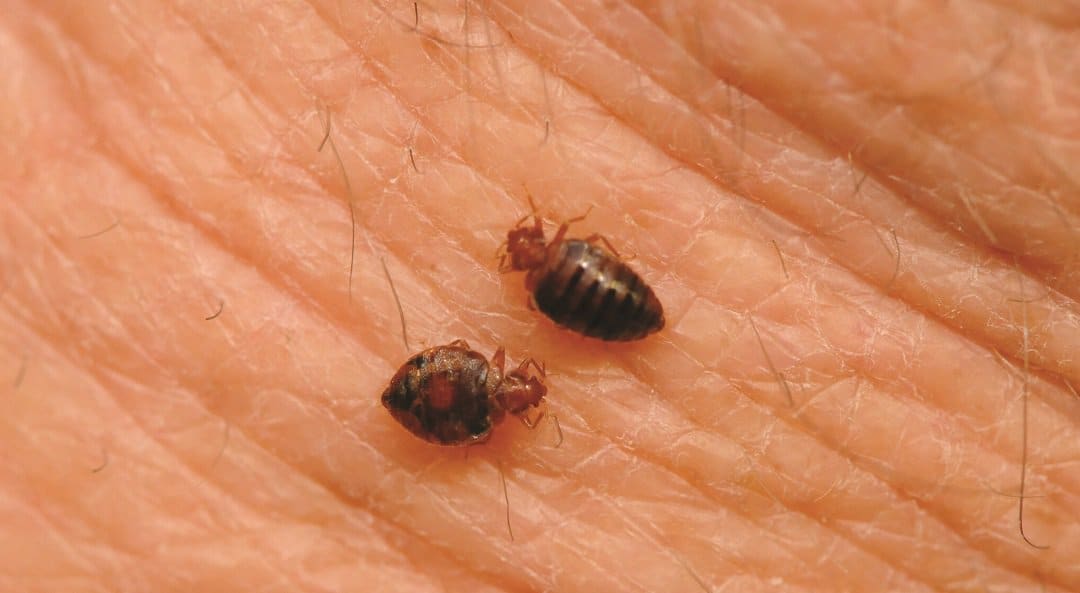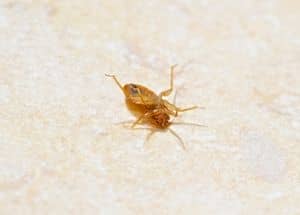You may wake up in the morning and be horrified to find that bed bugs have bitten you. Naturally, you wonder where they could have come from in your house because this problem has never happened before.
Then you start to get rid of them by yourself using the strongest remedy, but the insects not only do not disappear but also multiply with great speed. Understanding how pests reproduce will help you take control of the situation and get rid of the insects. Are bedbugs asexual, and how do insects breed? Find out from this article!
[wpsm_titlebox title=”Are Bed Bugs Asexual?” style=”main”]
Indeed, many insects reproduce both sexually and asexually. For example, these include ants, wasps, and aphids. Fortunately for people, bed bugs are not part of this group of insects. The fact is that although insects are not asexual, the female does not need the presence of the male to lay eggs. Having one fertilized female in your home is enough to turn into a family of several dozen insects in a few weeks. But if bed bugs were asexual, they could reproduce much faster, and it would be much harder to get rid of them.
[/wpsm_titlebox]
Bed bugs have flat, vast bodies measuring 3 to 5 mm. When the insect eats, the body is round and has a red hue. To a person seeing insects for the first time, they appear to be the same. Indeed, the difference may not be clear to many people, but it is there. The male’s body is more elongated and smaller than the female’s.
Bed bug breeding is not seasonal; it occurs year-round. The only essential condition for insects to reproduce is to eat enough food. That is why insects come to you almost every night to feed on your blood. That is how they get their strength to sustain life and hatch offspring.
How Do Bed Bugs Reproduce: Fast Life Cycle
Understanding the life cycle of the bed bug will help you take control of insect reproduction in your home. There are several stages to an insect’s emergence:
- The male inseminates the female by piercing her abdomen.
- After fertilization, the female bedbug tries to find a secluded, dark, and warm place to lay her eggs for the next 6–8 weeks.
- After one to two weeks, a nymph emerges from the egg.
- The nymph passes through five stages of maturation into an adult. Under favorable conditions, this process takes up to 5 weeks.
- The adult is ready to mate, and the cycle repeats.
Now I want to elaborate on some processes.
How do bed bugs have sex?
I have already mentioned that the body of the male bed bug is more pointed because it has a sex organ at the very tip of its tail. The male pierces the female’s lower abdomen with it to fertilize her. This process is called traumatic insemination in bed bugs.

How fast do bed bugs reproduce?
Immediately after mating, the female attempts solitude to lay her eggs. She finds a dark, warm place for herself, where she will be sure that the eggs will be safe. This place can be on the bed, in a crevice on the floor, in the baseboard, and so on. She may lay three to five eggs daily.
Each egg takes one to two weeks to mature before the nymph emerges. The nymph then goes through five stages of maturation. As the insect passes to the next stage, it sheds the old shell. Roughly 5–6 weeks later, the nymph transforms into an adult.
Can bed bugs lay eggs without mating?
There is a myth that a female can produce offspring without the male’s homesteading. But let me clarify this information. Before the female can lay eggs, the male must fertilize her. But during the following weeks, while the female insect is laying eggs, she may be alone. That means that if a pregnant insect enters your home, the spread of pests is unfortunately inevitable.
[su_youtube url=”https://youtu.be/jkKZhuHa2E8″]
FAQ on How Do Bed Bugs Mate?
In this section, I have given brief answers to questions about insects, which I get most often.
Can male bed bugs lay eggs?
No, male insects do not lay eggs because they do not have the necessary organs to do so. The male has a sex organ called the aedeagus. It pierces the female’s abdomen to fertilize her.
How many bed bugs does it take to reproduce?
For a female to fertilize, she needs a male. However, the female lays eggs without the male being present. Therefore, an infestation of bed bugs in your home can occur after one individual has appeared.
Can a single bed bug reproduce?
Yes, as I’ve said before, it takes one pregnant female in the house for the insects to start reproducing. Since adult bed bugs can mate with their offspring, this process only gains momentum.
Final Tips
Understanding the fundamental processes of bed bugs will make it easier for you to fight them. Knowing these nuances will prevent you from acting like a blind kitten. Knowing how bed bugs mate and where they lay their eggs will help you proceed so that no insects are left in your home.
Well, if you haven’t already encountered such a problem, at least you know how insects get into your home. Because being informed means being armed.
Have you ever had to deal with bed bugs? Tell us about what it was like.
Also read:
References:
- BED BUGS: DIAGNOSIS AND TREATMENT: https://www.aad.org/public/diseases/a-z/bed-bugs-treatment
- What Do Baby Bed Bugs Look Like: https://www.orkincanada.ca/blog/baby-bed-bugs-nymphs/
- WHAT DO BED BUGS LOOK LIKE: https://www.wittpm.com/what-do-bed-bugs-look-like

